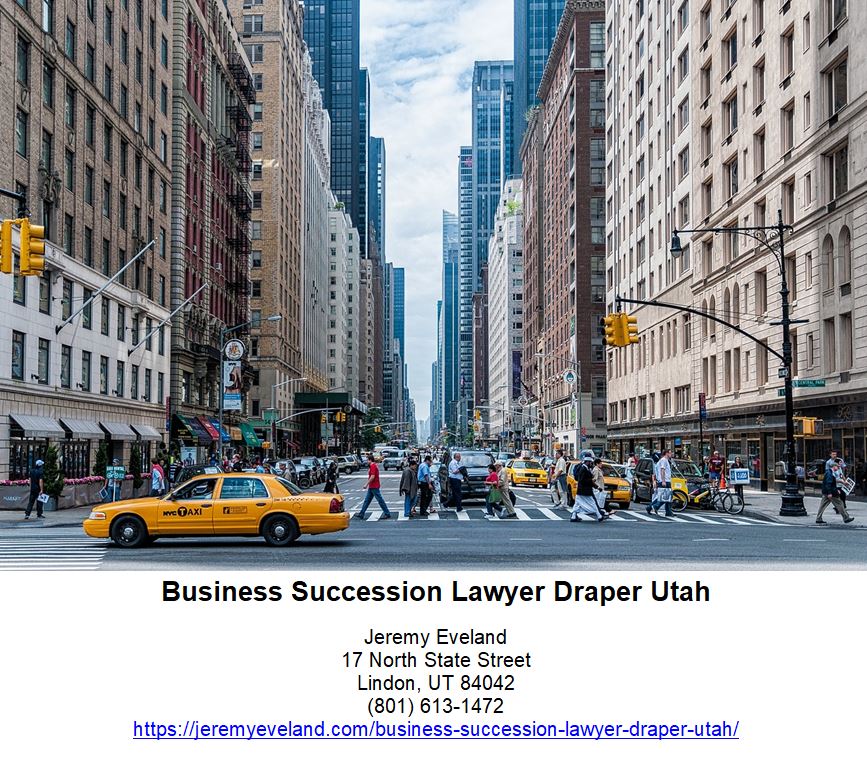Estate planning is an essential aspect of life that many people tend to overlook or procrastinate until it’s too late. It’s crucial for people of all income levels to engage in estate planning, regardless of how much wealth they think they have. Whether you’re a high net-worth individual or someone with modest assets, developing an estate plan is critical in ensuring your loved ones are protected after your death.
Why Estate Planning is Important
Many people assume that estate planning is only necessary for the wealthy, but that couldn’t be further from the truth. Estate planning is not solely about money; it’s about protecting what matters most to you and making sure that your wishes are carried out after you pass away. Without proper estate planning, your assets, including properties, financial accounts, and personal belongings, may end up in probate court or distributed based on rules set by the state rather than your desires.
Furthermore, estate planning isn’t just for the inevitable end of life. It can also address what happens if you become incapacitated or unable to make decisions regarding your finances or health care.
Understanding Estate Planning
Estate planning is the process of organizing and managing your assets during your lifetime and ensuring their distribution upon your death or incapacity. It involves creating legal documents that outline your wishes and instructions for the management of your assets and personal affairs.
The objective of estate planning is to guarantee that your loved ones are taken care of according to your wishes and that your legacy is preserved. Having an estate plan provides peace of mind, knowing that your affairs have been well thought out and planned for accordingly.
Estate Planning for People of All Income Levels
Regardless of your income level, it’s essential to have an estate plan in place. The process may be more complex for high net-worth individuals, but even those with modest assets should engage in estate planning to protect their family and loved ones.
Your estate plan can include specific instructions on how your assets will be distributed and who will inherit what. It also involves appointing someone to manage your affairs if you become incapacitated or pass away.
Assets to Consider in Estate Planning
When creating an estate plan, there are several things to consider, including:
Real Estate: Your home, vacation homes, rental properties
Financial accounts: Savings accounts, investment accounts, stocks, bonds, retirement accounts
Personal property: Vehicles, jewelry, art, collectibles, furniture
Business interests: If you own a business, consider who will take over after you’re gone
Digital assets: Email accounts, social media profiles, websites
Creating a Will
Creating a will is one of the most critical aspects of estate planning. A will is a legal document that specifies how you want your assets to be distributed among your beneficiaries upon your death. Without a will, your assets will be distributed based on state laws rather than your desires.
When creating a will, you must choose an executor who will be responsible for carrying out the terms outlined in the document. The executor is typically a trusted family member, friend, or attorney.
Trusts and Estate Planning
Trusts are another important aspect of estate planning. They allow you to transfer assets to a trustee who can manage and distribute them according to your instructions. Trusts can be beneficial for those who have minor children or want to provide ongoing support to a loved one after their passing.
There are several types of trusts, including revocable trusts, irrevocable trusts, and special needs trusts. The type of trust you choose will depend on your specific needs and circumstances.
Choosing an Executor
Choosing an executor is an essential part of estate planning. The executor is responsible for carrying out the wishes outlined in your will, managing your assets, and distributing them to your beneficiaries.
When selecting an executor, it’s crucial to choose someone you trust, who is reliable, and capable of handling the duties involved. It’s also vital to discuss your wishes with your executor ahead of time to ensure they understand and are prepared to carry out your desires.
Advanced Healthcare Directives
Advanced healthcare directives are legal documents that allow you to specify your wishes regarding medical treatment if you become incapacitated and unable to make decisions for yourself. They include living wills, durable power of attorney for healthcare, and do-not-resuscitate orders.
Having advanced healthcare directives in place can provide peace of mind, knowing that your healthcare decisions have been made according to your wishes. It also relieves the burden on your loved ones who may have to make difficult decisions about your care without knowing your wishes.
Power of Attorney
Power of attorney is a legal document that allows you to appoint someone to act on your behalf if you become incapacitated or unable to manage your affairs. The person you designate as your agent will have the authority to make financial and legal decisions on your behalf.
Having power of attorney in place can prevent family conflicts and ensure that your finances are managed correctly if you’re unable to do so.
Estate Taxes
Estate taxes are taxes levied on the transfer of property after your death. The federal estate tax exemption for 2021 is $11.7 million, meaning estates valued under this amount are exempt from estate taxes. However, some states have their estate tax laws, which may apply even if your estate falls below the federal exemption.
Working with a financial advisor or estate planning professional can help you navigate estate tax laws and minimize the amount of tax your estate must pay.
The Middle-Class Dilemma: Why Estate Planning is Essential for Every Family’s Financial Future
When people hear the term “estate planning,” they often assume it’s only for wealthy individuals who have a lot of assets to pass on. However, estate planning is actually important for everyone, regardless of their income level.
Simply put, estate planning involves preparing for what will happen to your assets and property after you die or become incapacitated. One reason why estate planning is so crucial is that it allows you to have control over what happens to your assets after you’re gone.
This can include everything from your home and savings accounts to sentimental items like family heirlooms. Without an estate plan, these items may not end up with the people you intended them for, or they could be tied up in lengthy legal battles that drain resources from your loved ones.
Why Middle-Class Families Need Estate Planning
While everyone can benefit from having an estate plan in place, middle-class families may actually have even more at stake than the wealthy when it comes to protecting their assets and ensuring their loved ones are taken care of. Many middle-class families may not realize just how important estate planning is because they assume they don’t have enough assets or wealth to make it worthwhile. However, this couldn’t be further from the truth.
In fact, middle-class families may have even more reason than the wealthy to prioritize estate planning because they often don’t have as much financial cushion if something unexpected were to happen. Without a proper plan in place, middle-class families could risk losing everything they’ve worked hard for if a creditor or lawsuit comes knocking.
Additionally, without a clear plan outlining who will inherit what and how those assets will be distributed, family conflicts could arise that tear apart even the closest relationships. In short: no matter what income level someone falls under – everyone needs an estate plan in place!
Protecting Your Assets
Why Estate Planning is Crucial for Asset Protection
Estate planning is often viewed as a way to plan for the distribution of assets after death. However, it can also be an essential tool in protecting one’s wealth and assets during life. For middle-class families, this can be especially important, given that they may not have the same financial cushion as wealthier individuals.
One of the primary ways that estate planning can protect assets is by establishing trusts. Trusts allow individuals to transfer ownership of their assets to a trustee, who holds them for the benefit of designated beneficiaries.
This arrangement provides a layer of protection against creditors and lawsuits because the assets are no longer owned by the individual directly. Instead, they are held in trust and managed by a third party who has fiduciary obligations to act in the beneficiaries’ best interests.
Why Asset Protection is Vital for Middle-Class Families
Middle-class families may be particularly vulnerable to financial setbacks that could threaten their hard-earned savings and assets. For example, unexpected medical bills or legal judgments stemming from accidents or other incidents could quickly wipe out savings accounts and leave families struggling financially.
Estate planning can help mitigate these risks by providing asset protection strategies like trusts and other legal entities designed to shield assets from creditors and lawsuits. These tools may not eliminate all potential threats to one’s wealth, but they can certainly help minimize them while providing peace of mind knowing that one’s family’s financial future is safeguarded against unexpected events that could arise at any time.
Providing for Your Loved Ones
Leaving a Legacy of Financial Stability
One of the most significant benefits of estate planning is that it allows you to provide for your loved ones after you’re gone. For middle-class families, this can be especially crucial.
With fewer resources to fall back on, ensuring financial stability for your family can make all the difference in their future success. Estate planning allows you to choose how your assets will be distributed after your death, ensuring that your loved ones are taken care of in the way you see fit.
This may include leaving money or property directly to family members, setting up trusts to provide ongoing support, or designating beneficiaries on life insurance policies or retirement accounts. By taking the time to create an estate plan and outline how you want your assets distributed, you can leave a powerful legacy of financial stability and security for your family.
Protecting Your Loved Ones from Legal Complications
In addition to providing financial support for your loved ones, estate planning can also help protect them from legal complications that may arise after your death. Without a clear plan in place, there may be confusion over who should receive what assets, leading to disputes among family members.
This can be especially problematic for middle-class families who may not have the resources or legal expertise needed to navigate these types of conflicts. By creating an estate plan that clearly outlines your wishes and designates beneficiaries for each asset, you can help avoid these types of legal complications and ensure that your loved ones are able to receive their inheritance without unnecessary delays or disputes.
Overall, providing for your loved ones through estate planning is an essential part of building a strong financial foundation for middle-class families. With careful consideration and thoughtful planning, you can leave behind a legacy of support and security that will benefit generations to come.
Avoiding Family Conflicts
Talk it Out: Communication is Key
One of the most common reasons why family conflicts arise during estate planning is because of a lack of communication. Typically, the individual planning their estate has a unique vision for how their assets should be distributed.
However, if family members are not aware of this vision or feel that their own concerns are not being taken seriously, it can lead to tension and conflict. By sitting down with your family members and discussing your wishes openly and honestly, you can help avoid these kinds of conflicts before they begin.
Encourage your loved ones to share their own perspectives, and be willing to compromise when possible. This will help ensure that everyone feels heard and valued during this important process.
Legal Protection: Protecting Your Wishes
Even with open communication among family members, there may still be disagreements about how assets should be distributed after one’s passing. This is where legal protection comes in. By working with a knowledgeable estate planning attorney, you can ensure that your wishes are clearly documented in legally binding documents like wills and trusts.
This not only helps protect against potential disputes among family members but also ensures that your assets are distributed according to your wishes rather than those of the state. For middle-class families who may not have the resources to hire lawyers or fight lengthy legal battles, proper estate planning can provide peace of mind knowing that their assets will be distributed as they intended without costly legal battles.
Minimizing Taxes
When it comes to estate planning, minimizing taxes is a key consideration for many people. Proper planning can help reduce the tax burden on your assets, which in turn reduces the financial burden on your heirs.
This is especially important for middle-class families, who may not have as much disposable income or wealth as wealthier individuals. One way to minimize taxes is through careful selection of beneficiaries and assets.
By directing certain assets to specific beneficiaries and taking advantage of tax-friendly accounts like IRAs and 401(k)s, you can reduce the amount of taxes owed on your estate. Additionally, working with a knowledgeable estate planner can help you explore other strategies such as trusts or gifting that can further minimize taxes.
The Importance for Middle-Class Families
Middle-class families often find themselves caught in a tricky situation when it comes to estate planning: they may not have enough wealth to afford expensive legal fees or tax experts, but they also don’t want their loved ones burdened with a heavy tax bill after their passing. By properly planning and minimizing taxes through estate planning, middle-class families can ensure that their assets are distributed equitably while still protecting their loved ones’ financial well-being.
While many people think of estate planning as something only for the wealthy, it’s actually essential for anyone who wants to protect their assets and provide for their loved ones after they’re gone. For middle-class families in particular, proper estate planning can provide peace of mind knowing that there’s a plan in place to protect their hard-earned assets and minimize any unwanted financial burdens. By working with an experienced estate planner and taking advantage of all available strategies – including those aimed at reducing taxes – any family can create an effective plan that meets its unique needs and goals.
Updating Your Estate Plan
It’s essential to regularly review and update your estate plan to ensure that it reflects your current desires and circumstances. Significant life events such as marriage, divorce, the birth of a child, or changes in your financial situation may require updates to your estate plan.
It’s recommended that you review your estate plan every three to five years, or more frequently if there have been significant life changes.
Mistakes to Avoid in Estate Planning
Estate planning can be complex, and there are several common mistakes to avoid, including:
Failure to create an estate plan
Failure to update your estate plan
Failure to choose the right executor or trustee
Failure to consider all assets in your estate plan
Failure to address tax consequences
Failure to communicate your intentions with your loved ones
Working with an experienced estate planning professional can help you avoid these mistakes and ensure that your wishes are carried out after your death.
Professional Help in Estate Planning
While it’s possible to create an estate plan on your own, the process can be complex, and there may be legal implications if not done correctly. Working with an experienced estate planning professional can provide peace of mind and ensure that your estate plan is legally sound.
An estate planning professional can help you navigate the complex legal landscape, ensure that all documents are properly executed, and provide guidance on minimizing tax consequences.
Estate planning is crucial for people of all income levels. It’s about protecting what matters most to you and ensuring that your wishes are carried out after your death. Whether you’re a high net-worth individual or someone with modest assets, engaging in estate planning provides peace of mind and ensures that your loved ones are taken care of.
By understanding the importance of estate planning, the assets to consider, creating a will and trusts, choosing an executor, advanced healthcare directives, power of attorney, estate taxes, updating your estate plan, avoiding common mistakes, and seeking professional help, you can develop a comprehensive estate plan that protects your legacy and loved ones.
FAQs
Do I need an estate plan if I don’t have many assets?
Yes, having an estate plan is essential regardless of the number of assets you have. It ensures that your wishes are carried out and your loved ones are protected after your death.
What happens if I don’t have a will?
If you die without a will, your assets will be distributed based on state laws rather than your desires. This can lead to family conflicts and assets being distributed in ways you wouldn’t have wanted.
What is a trust, and do I need one in my estate plan?
A trust is a legal document that allows you to transfer assets to a trustee who can manage and distribute them according to your instructions. Trusts can be beneficial for those with minor children or who want to provide ongoing support to loved ones after their passing.
How often should I update my estate plan?
It’s recommended that you review your estate plan every three to five years, or more frequently if there have been significant life changes.
Can I create an estate plan on my own, or do I need professional help?
While it’s possible to create an estate plan on your own, working with an experienced estate planning professional can ensure that your estate plan is legally sound and that all documents are properly executed.
Areas We Serve
We serve individuals and businesses in the following locations:
Salt Lake City Utah
West Valley City Utah
Provo Utah
West Jordan Utah
Orem Utah
Sandy Utah
Ogden Utah
St. George Utah
Layton Utah
South Jordan Utah
Lehi Utah
Millcreek Utah
Taylorsville Utah
Logan Utah
Murray Utah
Draper Utah
Bountiful Utah
Riverton Utah
Herriman Utah
Spanish Fork Utah
Roy Utah
Pleasant Grove Utah
Kearns Utah
Tooele Utah
Cottonwood Heights Utah
Midvale Utah
Springville Utah
Eagle Mountain Utah
Cedar City Utah
Kaysville Utah
Clearfield Utah
Holladay Utah
American Fork Utah
Syracuse Utah
Saratoga Springs Utah
Magna Utah
Washington Utah
South Salt Lake Utah
Farmington Utah
Clinton Utah
North Salt Lake Utah
Payson Utah
North Ogden Utah
Brigham City Utah
Highland Utah
Centerville Utah
Hurricane Utah
South Ogden Utah
Heber Utah
West Haven Utah
Bluffdale Utah
Santaquin Utah
Smithfield Utah
Woods Cross Utah
Grantsville Utah
Lindon Utah
North Logan Utah
West Point Utah
Vernal Utah
Alpine Utah
Cedar Hills Utah
Pleasant View Utah
Mapleton Utah
Stansbury Par Utah
Washington Terrace Utah
Riverdale Utah
Hooper Utah
Tremonton Utah
Ivins Utah
Park City Utah
Price Utah
Hyrum Utah
Summit Park Utah
Salem Utah
Richfield Utah
Santa Clara Utah
Providence Utah
South Weber Utah
Vineyard Utah
Ephraim Utah
Roosevelt Utah
Farr West Utah
Plain City Utah
Nibley Utah
Enoch Utah
Harrisville Utah
Snyderville Utah
Fruit Heights Utah
Nephi Utah
White City Utah
West Bountiful Utah
Sunset Utah
Moab Utah
Midway Utah
Perry Utah
Kanab Utah
Hyde Park Utah
Silver Summit Utah
La Verkin Utah
Morgan Utah
Estate Planning Consultation
When you need help from an Estate Planning Lawyer in Utah call Jeremy D. Eveland, MBA, JD (801) 613-1472 for a consultation.
Jeremy Eveland
17 North State Street
Lindon UT 84042
(801) 613-1472
Related Posts
Corporate Attorney West Valley City Utah
What Does A Corporate Counsel Do?
Can Corporate Counsel Represent A Corporation In Court?
Corporate Attorney Salt Lake City Utah
Business Succession Lawyer Saratoga Springs Utah
Estate Planning Salt Lake City Utah
Business Succession Lawyer Holladay Utah
Corporate and Business Law in Utah
Does Starting My Own Business Mean I Get A Corporation Automatically?
Impact of Environmental Regulations on Business Law Compliance
Business Lawyer South Jordan Utah
Business Lawyer Millcreek Utah
Business Lawyer Taylorsville Utah
How Artificial Intelligence is Shaping the Future of Business Law












